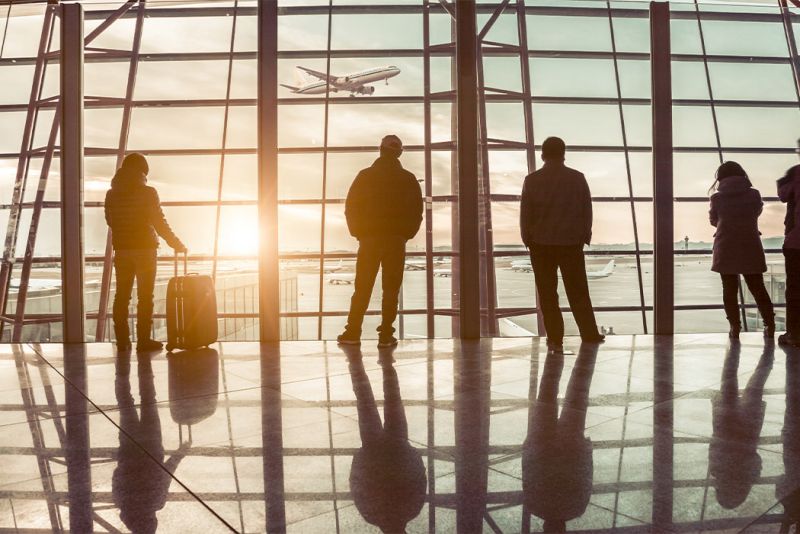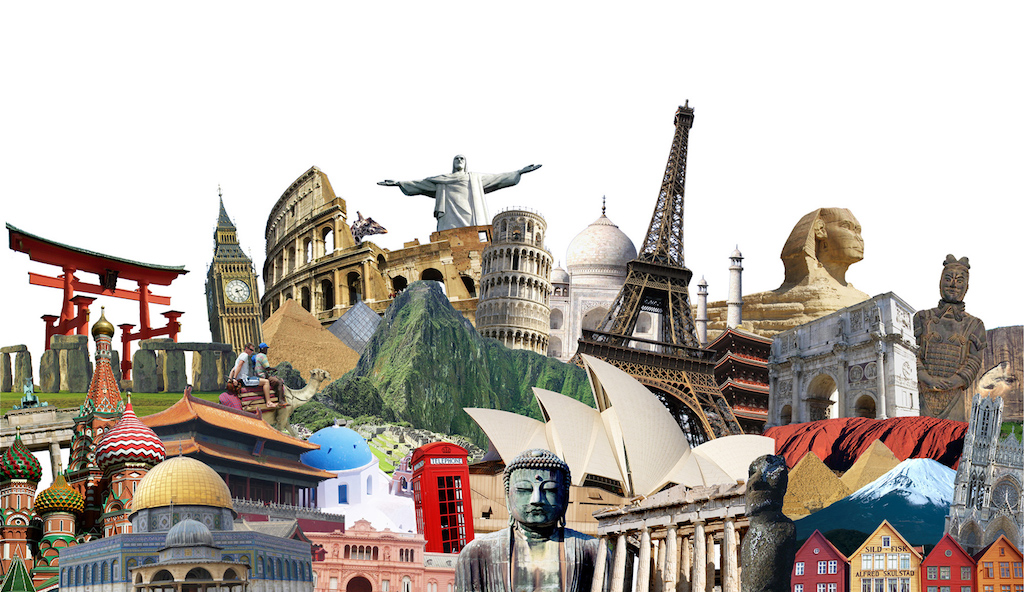Traveling means going to different places and discovering places you’ve never been to before. It includes learning about new countries, having unique adventures, and seeing things from different points of view. It gives people a chance to get out of their normal routines and experience other people’s daily lives. There are many benefits to traveling, from improving your physical and mental health to learning about other cultures and getting life experience. It gives people chances to test their limits in new settings and learn important lessons about life. Traveling is a great way to broaden your horizons and find your way in life, whether you’re looking to explore the unknown or just enjoy the beauty of a different country. Traveling has many great benefits besides just exploring new places. It can help you grow as a person, improve your social skills, and find peace of mind. People who want to improve their lives should definitely go on trips. They are a great way to escape the monotony of everyday life and discover new adventures.
Benefits of Traveling
Going to different places is good for your mental and physical health in many ways. Getting less stressed and anxious is one of the biggest benefits. Getting away from your normal routine and interacting with new people and places can help you stop feeling stressed and give you peace of mind. It is thought that exploring new places and getting used to new ways of doing things can also sharpen the mind and improve brain function.
Traveling can also make you feel better about your own self-worth. Dealing with tough situations and language hurdles can help people improve their social skills and make it easier for them to get along with others, which can boost their general confidence.
Exploring new places and doing more outdoor activities while traveling can be good for your health. This can help you get fitter and lose weight. Traveling to new places and doing things outside are good for your health and get you moving more.
In addition, learning about different countries and their food can help you eat better. Trying new foods from other countries that are high in nutrients and low in bad ones can help you eat better.
It has also been shown that traveling lowers the risk of getting heart disease. Physical activity, along with less worry and a healthy way of life, can lower the chance of heart disease and make heart health better in general.
How to Travel in Different Ways
Different kinds of travel offer different experiences and chances, so they can suit people with a wide range of hobbies and goals. For example, adventure travel is all about doing exciting things that get your heart racing, like bungee jumping or white-water kayaking. People can get out of their comfort zone and do exciting things that can help them grow as people and make memories that will last a lifetime.
Cultural tourism, on the other hand, is all about experiencing a place’s history and practices firsthand. By visiting historical places, taking part in traditional events, or trying the food of a different culture, tourists can learn more about that society. This kind of journey helps people learn about other cultures and appreciate differences.
Volunteer travel means giving back to communities by working on important projects or helping with environmental protection. People who do this kind of travel can make a good difference in the places they visit while also feeling fulfilled and having a purpose in life.
People don’t always think of business travel as exciting, but it can be very helpful for networking and building your career. It lets people go to workshops, make new business contacts, and learn more about markets around the world.
There are different kinds of travel, and each one has its own rewards and adventures. Adventure travel provides excitement and pushes one’s limits, cultural tourism promotes cultural understanding, volunteer travel fosters a sense of social responsibility, and business travel expands professional networks. Regardless of the type, traveling broadens horizons and opens doors to new possibilities.
Mental Health Benefits of Traveling in Different Countries
Traveling in different countries offers numerous mental health benefits. Stepping out of your daily routine and immersing yourself in unfamiliar situations and cultures can have a positive impact on your emotional well-being. The challenges and adventures of travel force you to adapt and problem-solve, building resilience and boosting self-confidence. Interacting with people from different walks of life enhances your social skills and cultural sensitivity, promoting understanding and empathy. Exploring new places and engaging in adventurous activities also stimulates the brain and reduces stress, leading to improved mental clarity and overall peace of mind. Additionally, trying foreign foods and experiencing different cultural practices can bring joy and excitement, adding a sense of novelty to your life. Ultimately, traveling in different countries can provide a much-needed break from your daily grind and serve as a transformative journey for your mental health.

Stress Reduction and Relaxation
Traveling in different countries can have numerous benefits for stress reduction and relaxation. One of the key advantages of traveling is that it allows individuals to take a break from their normal environment and daily routine. This change in scenery and daily activities can work wonders in decreasing stress and anxiety levels.
When we travel, we expose ourselves to new experiences, cultures, and landscapes, which can have long-lasting effects on our mental well-being. Stepping outside of our comfort zones and embracing the unfamiliar can lead to personal growth, increased self-confidence, and a renewed sense of perspective.
It is important, however, to choose a mode of travel that doesn’t cause additional stress. Planning, taking the time to organize and research, and opting for stress-free travel options can enhance the relaxation benefits of traveling.
Cognitive Stimulation
Traveling in different countries can provide a wealth of cognitive stimulation that can enhance creativity, promote emotional and mental revitalization, and provide peace of mind. Immersing ourselves in new cultures, landscapes, and experiences can ignite our imagination and inspire new ways of thinking.
Exploring unfamiliar surroundings forces us to think outside the box and find creative solutions to challenges we encounter along the way. This enhanced creativity can have a profound impact on our personal and professional lives, allowing us to approach problems with fresh perspectives and innovative ideas.
Additionally, travel experiences can provide emotional and mental revitalization. Stepping out of our normal routine and embracing new environments can offer a break from the daily grind, allowing us to recharge and rejuvenate. Engaging with different cultures and meeting people from all walks of life expands our horizons and exposes us to diverse perspectives. These interactions can foster empathy, compassion, and a greater understanding of the world around us, leading to a renewed sense of purpose and fulfillment.
Furthermore, travel can provide peace of mind and reduce stress. Being in new surroundings can offer a sense of escape from the pressures of everyday life, allowing us to unwind and relax. The beauty of natural landscapes, the serenity of foreign cities, and the freedom of exploration can all contribute to a state of inner calm and tranquility.
Improved Self-Confidence
Traveling provides more than just beautiful sights and memorable experiences; it can also be a powerful confidence booster. Stepping out of our comfort zones and navigating unfamiliar territories pushes us to become more independent, resilient, and adaptable individuals. Through these experiences, we develop invaluable skills that can be applied to various aspects of our lives.
One of the key benefits of traveling is the opportunity to enhance our social skills. Interacting with people from different cultures and backgrounds helps us become more open-minded and culturally sensitive. We learn to communicate in new ways, adapt to unfamiliar customs, and embrace diversity. These interactions build our confidence in social situations and enable us to connect with people from all walks of life.
Moreover, traveling desensitizes us to the fear of the unknown and helps us overcome obstacles. Whether it’s deciphering a foreign language or navigating through unfamiliar transportation systems, each challenge we conquer boosts our self-assurance. By immersing ourselves in new and sometimes uncomfortable situations, we develop the ability to think on our feet and find creative solutions to problems.
Exposure to New Cultures and Experiences
Exposure to new cultures and experiences when traveling in different countries provides a myriad of benefits. It expands our views of the world and broadens our horizons, allowing us to step out of our familiar surroundings and explore different ways of life.
Traveling introduces us to alternative lifestyles and traditions, enabling us to gain a deeper understanding and appreciation of diverse cultures. By immersing ourselves in local customs and traditions, we develop a sense of empathy and tolerance towards others’ beliefs and practices.
This exposure fosters a sense of acceptance, promoting a more inclusive and global perspective. It allows us to challenge our preconceived notions and judgments about other cultures and helps break down stereotypes. We begin to realize that despite our differences, we share common values of love, family, and human connection.
Through these experiences, we gain invaluable insight into the complexities of the world we live in and learn to adapt to unfamiliar situations. We become more adaptable, open-minded, and culturally sensitive individuals. Exposure to new cultures and experiences while traveling truly enriches our lives, enabling us to embrace the beauty of diversity and cultivate a more compassionate and accepting mindset.
Physical Health Benefits of Traveling in Different Countries
Traveling to different countries offers numerous physical health benefits. Firstly, it encourages and inspires us to engage in adventurous activities, such as hiking, swimming, or exploring new landscapes. These physical activities not only provide an exciting way to stay active, but they also contribute to improving cardiovascular health and maintaining a healthy weight. Additionally, traveling exposes us to different cuisines and encourages us to try new and foreign foods. This culinary exploration opens up a world of healthy options, including fresh produce, lean proteins, and traditional dishes that are often made with wholesome ingredients. Lastly, traveling allows us to break away from our normal routine and escape the daily grind. This change in environment and pace provides a much-needed respite for our bodies, allowing us to relax and rejuvenate. Whether it’s lounging on a tropical beach or embarking on a hiking adventure, traveling provides a refreshing break that benefits our physical well-being.
Improving Your Immune System Functionality
Traveling isn’t just about exploring new destinations or experiencing different cultures; it can also have a positive impact on our overall health, particularly the functionality of our immune system. The immune system plays a crucial role in defending our body against illnesses and diseases, making it essential to keep it strong and resilient.
One of the key benefits of travel is the exposure to different environments. When we explore new countries and immerse ourselves in unfamiliar settings, our immune system is exposed to a wide range of bacteria, viruses, and allergens. This exposure stimulates our immune cells, helping them build resilience and adapt to various threats. Essentially, it’s like giving our immune system a workout, boosting its effectiveness in the long run.
Additionally, travel often involves increased physical activity. Whether it’s hiking up a mountain, exploring a vibrant city on foot, or trying out adventurous activities, these experiences contribute to a stronger immune system. Regular physical activity enhances the circulation of immune cells in our body, allowing them to travel more efficiently and detect potential threats.
Furthermore, travel can significantly reduce stress levels. Stepping away from our everyday routine and immersing ourselves in new experiences promotes relaxation and rejuvenation. Studies have shown that chronic stress weakens the immune system, making us more susceptible to infections. By taking a break from the daily grind and engaging in travel activities, we can lower our stress levels and boost our immune system functionality.
Increased Exercise and Activity Levels
Traveling provides ample opportunities for increased exercise and activity levels, leading to improved physical health. Engaging in various outdoor activities such as hiking, biking, and exploring new destinations on foot contributes to a more active lifestyle.
These activities not only add excitement to our travel experience but also offer numerous health benefits. Increased exercise levels result in improved cardiovascular health, as the heart becomes stronger and more efficient at pumping blood. Regular physical activity also helps in weight loss, as it burns calories and increases metabolism.
Incorporating exercise into our daily routines while traveling allows us to maintain our fitness and stay active while exploring new places. Whether it’s taking a morning jog in a picturesque park or participating in local sports and games, travelers have a wide range of options to keep themselves physically engaged.
By increasing exercise and activity levels during our travels, we not only enhance our physical health but also promote overall well-being. A healthy body leads to a healthy mind, allowing us to enjoy our travel experiences to the fullest. So, lace up your shoes, step out, and make the most of your travels by staying active and reaping the benefits of increased exercise and physical activity.
Weight Loss and Improved Diet
When it comes to weight loss and improving our diet, traveling in different countries can play a crucial role. Exploring new cultures and cuisines provides us with unique opportunities to try new and healthier foods, engage in physical activities, and break away from unhealthy eating habits.
One of the most exciting aspects of traveling is experiencing the diverse culinary delights each country has to offer. Instead of sticking to our normal routine of fast food and processed meals, we can indulge in the fresh and local ingredients that are characteristic of different regions. These cuisines often emphasize nutritious options such as fruits, vegetables, and lean proteins, which can contribute to weight loss and improved diet choices.
Additionally, traveling allows us to engage in a wide range of physical activities. Whether it’s hiking through breathtaking landscapes, cycling around historic cities, or practicing yoga on picturesque beaches, there are countless opportunities to stay active while exploring new destinations. Regular physical activity not only helps with shedding pounds but also boosts our overall health and well-being.
By immersing ourselves in different cultures and their culinary traditions, we have the chance to learn healthier eating habits and incorporate them into our daily lives. Trying new and nutritious foods can expand our taste preferences and encourage us to make healthier choices even after we return home.
Incorporating keywords such as weight loss, improved diet, healthy eating, physical activities, and cultural cuisine is essential in highlighting the benefits of traveling for our overall well-being. So, why not embark on a journey of weight loss and an improved diet by exploring the world and embracing its diverse and nutritious offerings?
Impact on Heart Disease Risk Factors
Traveling in different countries can have a significant impact on heart disease risk factors. Regular travel can lower the risk of heart disease by reducing stress and engaging in physical activities.
Stress reduction is a crucial factor in maintaining a healthy heart. Traveling provides an opportunity to escape the daily grind and immerse oneself in new and unfamiliar situations. The excitement and adventure of exploring different cultures can help alleviate stress and promote emotional well-being. This, in turn, can have a positive effect on heart health.
Engaging in physical activities while traveling also plays a vital role in reducing the risk of heart disease. Many travel destinations offer a plethora of adventurous and outdoor activities that encourage movement and exercise. Whether it’s hiking, cycling, or practicing yoga, these activities not only contribute to weight loss but also improve cardiovascular health. Regular physical activity helps regulate blood pressure, reduce cholesterol levels, and improve overall heart function.
Numerous studies support the benefits of travel in lowering heart disease risk. For example, a study conducted by Cornell University found that travel forces individuals out of their sedentary routines and encourages physical activities, thus reducing heart disease risk factors. Another study by the American Heart Association revealed that regular vacations and leisure activities lower the risk of death from heart disease.

Language Barrier Issues When Traveling Abroad
One of the challenges that travelers often encounter when visiting foreign countries is the language barrier. Communicating with locals and navigating daily life can be difficult when you don’t speak the native language. However, overcoming this hurdle can lead to wonderful benefits and enriching travel experiences. While it may initially be daunting, attempting to learn and speak even a few basic phrases in the local language can greatly enhance your interactions and open doors to new connections. Engaging with locals in their language shows a level of respect and cultural sensitivity that can be greatly appreciated. Additionally, the language barrier may push you out of your comfort zone and develop your problem-solving skills as you find creative ways to communicate and navigate unfamiliar situations. Embracing the challenges of language barriers can ultimately lead to a deeper understanding of different cultures and a greater appreciation for the diversity of the world.
Learning New Languages
Learning new languages while traveling abroad offers numerous benefits and exciting opportunities. Firstly, being immersed in a foreign country provides constant exposure to new words and phrases, facilitating language learning. Engaging with native speakers allows for real-life practice and the chance to improve pronunciation and fluency.
The cognitive benefits of learning a new language are remarkable. Research shows that language learning boosts problem-solving skills, memory, and multitasking abilities. Additionally, it enhances cognitive flexibility, which enables individuals to think creatively and adapt to new situations with ease.
Not only does learning a new language provide cognitive advantages, but it also offers a deeper understanding of different cultures. Language is intertwined with culture, and learning a language opens doors to traditions, values, and customs. This cultural insight fosters empathy, respect, and cultural sensitivity.
From a career perspective, language skills can provide a competitive edge in today’s global job market. Employers value individuals who can communicate effectively with diverse audiences and navigate intercultural settings.
Conclusion
In conclusion, international travel offers a wide range of benefits that positively impact both our mental and physical health. By embarking on a journey to different countries, we have the opportunity to broaden our horizons and gain unique cultural experiences. Immersing ourselves in unfamiliar environments helps us develop a better understanding and appreciation for different walks of life, ultimately promoting cultural sensitivity.









